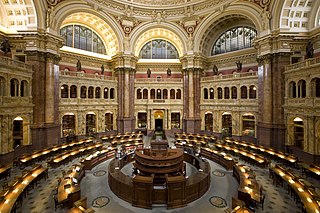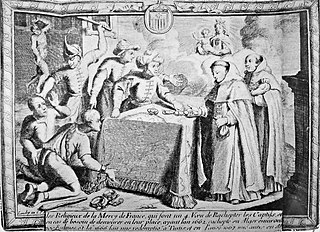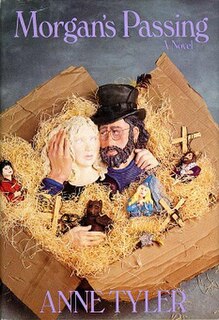Related Research Articles

The Ingenious Gentleman Don Quixote of La Mancha, or just Don Quixote, is a Spanish novel by Miguel de Cervantes. It was originally published in two parts, in 1605 and 1615. Considered a founding work of Western literature, it is often labeled "the first modern European novel" and many authors consider it to be the one of the greatest novels ever written. Don Quixote also holds the distinction of being the second most-translated book in the world, after the Bible.

Adventures of Huckleberry Finn is a novel by American author Mark Twain, which was first published in the United Kingdom in December 1884 and in the United States in February 1885.

John Hoyer Updike was an American novelist, poet, short-story writer, art critic, and literary critic. One of only four writers to win the Pulitzer Prize for Fiction more than once, Updike published more than twenty novels, more than a dozen short-story collections, as well as poetry, art and literary criticism and children's books during his career.
The slave narrative is a type of literary genre involving the (written) autobiographical accounts of enslaved Africans, particularly in the Americas. Over six thousand such narratives are estimated to exist; about 150 narratives were published as separate books or pamphlets. In the United States during the Great Depression (1930s), more than 2,300 additional oral histories on life during slavery were collected by writers sponsored and published by the Works Progress Administration, a New Deal program. Most of the 26 audio-recorded interviews are held by the Library of Congress.

The Tale of Genji is a classic work of Japanese literature written in the early 11th century by the noblewoman and lady-in-waiting Murasaki Shikibu. The original manuscript, created around the peak of the Heian period, no longer exists. It was made in "concertina" or orihon style: several sheets of paper pasted together and folded alternately in one direction then the other. The work is a unique depiction of the lifestyles of high courtiers during the Heian period. It is written in archaic language and a poetic yet confusing style that make it unreadable to the average Japanese person without dedicated study. It was not until the early 20th century that Genji was translated into modern Japanese by the poet Akiko Yosano. The first English translation was attempted in 1882 but was of poor quality and incomplete.

American literature is literature predominantly written or produced in English in the United States of America and its preceding colonies. Before the founding of the United States, the Thirteen Colonies on the eastern coast of the present-day United States were heavily influenced by British literature. The American literary tradition thus began as part of the broader tradition of English-language literature. However, a small amount of literature exists in other immigrant languages and Native American tribes have a rich tradition of oral storytelling.

John Underhill was an early English settler and soldier in the Massachusetts Bay Colony, the Province of New Hampshire, where he also served as governor; the New Haven Colony, New Netherland, and later the Province of New York, settling on Long Island. Hired to train militia in New England, he is most noted for leading colonial militia in the Pequot War (1636-1637) and Kieft's War which the colonists mounted against two different groups of Native Americans. He also published an account of the Pequot War.

The Barbary pirates, or Barbary corsairs or Ottoman corsairs, were Muslim pirates and privateers who operated from North Africa, based primarily in the ports of Salé, Rabat, Algiers, Tunis, and Tripoli. This area was known in Europe as the Barbary Coast, in reference to the Berbers. Their predation extended throughout the Mediterranean, south along West Africa's Atlantic seaboard and into the North Atlantic as far north as Iceland, but they primarily operated in the western Mediterranean. In addition to seizing merchant ships, they engaged in Razzias, raids on European coastal towns and villages, mainly in Italy, France, Spain, and Portugal, but also in the British Isles, the Netherlands, and Iceland. The main purpose of their attacks was slaves for the Ottoman slave trade as well as the general Arab slavery market in North Africa and the Middle East. Slaves in Barbary could be of many ethnicities, and of many different religions, such as Christian, Jewish, or Muslim.
Anne Tyler is an American novelist, short story writer, and literary critic. She has published twenty-three novels, including Dinner at the Homesick Restaurant (1982), The Accidental Tourist (1985), and Breathing Lessons (1988). All three were finalists for the Pulitzer Prize for Fiction, and Breathing Lessons won the prize in 1989. She has also won the Janet Heidinger Kafka Prize, the Ambassador Book Award, and the National Book Critics Circle Award. In 2012 she was awarded The Sunday Times Award for Literary Excellence. Tyler's twentieth novel, A Spool of Blue Thread, was shortlisted for the Man Booker Prize in 2015, and Redhead By the Side of the Road was longlisted for the same award in 2020. She is recognized for her fully developed characters, her "brilliantly imagined and absolutely accurate detail," her "rigorous and artful style", and her "astute and open language."

Royall Tyler was an American jurist and playwright. He was born in Boston, graduated from Harvard University in 1776, and then served in the Massachusetts militia during the American Revolution. He was admitted to the bar in 1780, became a lawyer, and fathered eleven children. In 1801, he was appointed a Justice of the Vermont Supreme Court. He wrote a play, The Contrast, which was produced in 1787 in New York City, shortly after George Washington's inauguration. It is considered the first American comedy. Washington attended the production, which was well-received, and Tyler became a literary celebrity.

The Bombardment of Algiers was an attempt on 27 August 1816 by Britain and the Netherlands to end the slavery practices of Omar Agha, the Dey of Algiers. An Anglo-Dutch fleet under the command of Admiral Edward Pellew, 1st Viscount Exmouth bombarded ships and the harbour defences of Algiers.

White slavery refers to the chattel slavery of Europeans, whether by non-Europeans, or by other Europeans. Slaves of European origin were present in ancient Rome and the Ottoman Empire.
Updike is a surname of Dutch origin, and is a spelling variant of the Dutch Opdijk, a topographical name meaning someone who lived on a dike. The surname has been present in North America since the settlement of New Netherland in the 17th century. Updike used to be spelled as Updyke and many other ways, but is now most commonly spelled as Updike.

Searching for Caleb is Anne Tyler's sixth novel. It was originally published by Alfred A. Knopf in 1975.

The Barbary slave trade refers to slave markets on the Barbary Coast of North Africa, which included the Ottoman provinces of Algeria, Tunisia and Tripolitania and the independent sultanate of Morocco, between the 16th and middle of the 18th century. The Ottoman provinces in North Africa were nominally under Ottoman suzerainty, but in reality they were mostly autonomous.

The following is the complete bibliography of John Updike, an American novelist, poet, critic and essayist noted for his prolific output over a 50-year period. His bibliography includes some 23 novels, 18 short story collections, 12 collections of poetry, 4 children's books, and 12 collections of non-fiction.

The French writer and folklore collector Henri Pourrat was born in 1887 in Ambert, a town in the mountainous Auvergne region of central France. He died near Ambert in 1959.

The action of 28 November 1751 was a naval engagement off Cape St. Vincent between a squadron of two Spanish ships of the line under captain Pedro Fitz-James Stuart and an Algerine squadron of two ships of the line under corsair Mohammed Chirif, which was fought from November 28 to December 2, 1751 and resulted in a victory for the Spanish fleet. The Algerine ships had come from the port of Algiers, and were acting as corsairs, conducting commerce raiding against Christian merchant ships and enslaving their crews. This was part of the Barbary slave trade, where the Barbary states, autonomous vassals of the Ottoman Empire raided Christian settlements and merchant vessels for slaves to sell in their own cities. The corsairs targeted Spain, a Christian country, and the Spanish Navy was sent to track down the formidable Algerine force of two ships of the line, which posed a significant threat to any Christian vessels in the region. When the fleets sighted each other on November 28, 1751, they found that they were evenly matched with their opposition; both fielded two ships of the line.

Morgan's Passing is a 1980 novel by Anne Tyler. It won the 1980 Janet Heidinger Kafka Prize for Fiction and was nominated for both the American Book Awards and the National Book Critics Circle Award.

Earthly Possessions is a 1977 novel by Anne Tyler. This, Tyler's seventh novel, followed Celestial Navigation and Searching for Caleb and preceded her award-winning novels Morgan's Passing, Dinner at the Homesick Restaurant, The Accidental Tourist, and Breathing Lessons.
References
- Crain, Caleb (2002). "Introduction". In Royall Tyler, The Algerine Captive or, The Life and Adventures of Doctor Updike Underhill, pp. xvii-xxxiii. New York: Modern Library. ISBN 978-0-375-76034-1.
- Davidson, Cathy N. Revolution and the Word: The Rise of the Novel in America. 2nd ed. New York: Oxford University Press, 2004.
- Gardner, Jared. Master Plots: Race and the Founding of an American Literature 1787-1845. Baltimore: Johns Hopkins University Press, 1998.
- Mackenthun, Gesa. “The Transoceanic Emergence of American ‘Postcolonial’ Identities.’ In A Companion to the Literatures of Colonial America, edited by Susan Castillo and Ivy Schweitzer. Malden, MA: Blackwell Publishing Ltd., 2005.
- Tyler, Royall. The Algerine Captive: Or, the Life and Adventures of Doctor Updike Underhill. New York: The Modern Library, 2002.
- University of Virginia Library. University of Virginia Library: Early American Fiction. Retrieved May 8, 2005.
- West Virginia University. Taylor, Royall. Retrieved May 8, 2005.